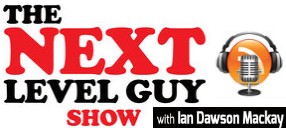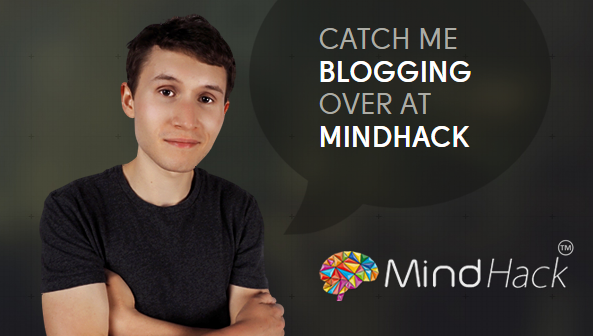
Today. we have a great interview with an up and coming entrepreneur and blogger, Cody McLain. A regular guest poster, business man and Next Level Guy!
1. From a relatively young age, you’ve been involved in business and creativity. Can you tell me about your upbringing and how you got into business?
It started with an Xbox. I was in middle school at the time and a friend and I wanted to play on the latest console that just came out. We brainstormed ideas and surprisingly it wasn’t me who came up with the idea to start a hosting company. So we each pitched in the $10 for the account and signed up for a reseller account. For those of you unfamiliar, a reseller account is when a host allows you to resell disk space and bandwidth on their server – sort of like a white label hosting company. So after signing up at Hostgator, we worked together for … about a week. Then that saying, don’t go into business with friends rang true. After a few arguments we realized it wasn’t really going to work out and he canceled the account. I didn’t want to give up so easily though, and decided to register my own domain and start a new company, called Xeserve. I had absolutely no clue what in the world I was doing at the time but from that point on I was obsessed with that thing and spent nearly all my free time figuring out what I needed to do to build my own company. We were quite poor but I was able to convince my mother to lend me $1,000 and she opened up a checking account (under her name of course). Then I was able to find a merchant account and was able to get that going so I could start accepting credit cards. I just found a free template online and started to put the website together. Over a few years the business started to grow on its own. More customers were coming in from various places and the business eventually grew in the span of 4 years to generate close to a million in sales annually.
2. Can you explain about Mind Hack, the inspiration for it and why my readers should check it out?
Being an entrepreneur for most of my life has led me to spend quite a bit of time studying business and productivity. After all, when you’re an entrepreneur, nobody is telling you what to do or what not to do. You have to figure everything on your own and do whatever you deem is necessary to make the business more successful. I creates MindHack as my way of sharing some of the productivity caves that took me years of research to truly discover. Great attention was given to every area of my life to improve my productivity not only in business but in my personal life too. I wakeup every morning with a very specific routine of gym/meditation/reading and some of the greatest artists, philosophers and businessman of our time all share their own routines. My point being there are many ways in which we can improve our lives, optimize our time and achieve our goals. Ultimately that’s what I hope people will get out of MindHack.
3. What is productivity and what are the external factors that affect?
Productivity is about increasing our output in an allotted amount of time. We all have a bell curve where we achieve maximum output within a certain amount of time. It’s been noted for example that we work best in 90 minute periods of work separated by 10-15 minute breaks. There are different variations of this known as the pomodori technique.
Distractions, and more importantly our environment affect how productive we are in the work that we do. Eliminating distractions by closing down your chat applications, and putting your phone on airplane mode when you’re trying to study can help immensely. Yet most of us never do that, why? The dopamine we get by checking if we have any new Facebook notifications exceeds our will to finish our essay or quarterly report.
Even looking beyond the minute distractions and quick-fixes we’re constantly trying to give ourselves, productivity can be applied to almost everything we do. Take for example your typing speed. If you’re job involves working at the computer, then somebody who types 50 wpm will get much less done in the same time span as somebody who can type at 90 wpm. However the initial investment of a few hours of training over a few weeks to improve that typing speed is seen by many as too much of a commitment.
Productivity needs to be looked at much more than just how can we do something better, but how can we improve our way of thought, our over-arching skills and routines that we experience everyday.

4. My site focuses on using examples of the entertainment world to better yourself. What TV/Film characters or role models do you look to for inspiration?
Ever watch the show Suits? (Suits – Season 1 [DVD]) It’s a fantastic show where a young lawyer named Mike Ross gets hired at a big NY Law Firm, only thing is – he isn’t a lawyer. He’s just incredibly smart and put in the time, effort and work necessary to put himself in the position to do that, regardless of his lack of official education. Mike is touted as being a genius in the show, but it never characterizes his workload, or the amount of time he had to spend learning and applying his skills that allowed him to be successful at what he does.
With that we come to the 10,000 hour rule, mentioned in Malcom Gladwell’s book, Outliers. One example he gives us the Beatles who performed in Hamburg, Germany over 1,200 times in the early 1960’s. During that time they amassed over 10,000 hours of playing time and by the time they returned to England they sounded like no one else. This is what made them the “overnight success”, as without those hours of commitment we never would have heard of them.
5. What three posts are you most proud of on Mind Hack?
I’d probably say:
http://www.mindhack.com/productivity-apps-work-life-balance-and-the-importance-of-daily-habits/
http://www.mindhack.com/psychology-of-procrastination/
http://www.mindhack.com/the-benefits-of-not-knowing-what-you-want-to-do-in-life/
6. Technology is everywhere these days, with access to information at the touch of a button. However, technology has also become a massive time waster. How do you utilize technology, without letting it ruin your productivity?
Technology is sort of like a double-edged sword; it provides us with endless, limitless, and downright fascinating information, whenever and wherever we want it.
The good? We’re almost always connected and able to find what we want, when we want it.
The bad? We’re almost always connected and able to find what we want, when we want it.
It takes quite a bit of self-discipline in today’s time of laptops, tablets, smartphones, and near-constant access to the Internet to keep technology from becoming an all-consuming distraction that completely saps our productivity.
There are patches, of course, to help keep productivity on track amid the lure of Facebook, Twitter, YouTube, and search engines that can take us anywhere with the click of a button. You can find several apps that will allow you to block websites detrimental to your productivity for as short or as long a time as you want. These are great if you’re looking for a band-aid, but they’re not going to help you build long-term habits that you can practice without the boost of technology.
So what’s the secret?
The key seems to be finding a balance that works for you. We’re naturally attracted to distractions because of the temporary high they give us — a text from a friend is probably more going to bring us more joy than crunching the numbers for the latest budget projections will. To be productive, I believe we need to embrace distractions — to a point. We need to allow ourselves to take breaks, but we need to be mindful of those breaks. Log onto Twitter for five minutes after you’ve rocked your work, but make sure you’re not still retweeting folks an hour later. When you’re energized from your break and still riding the boost of dopamine, jump back into your work. Knowing that you’ll be rewarded for your hard efforts of staying on task may even help you work better!

7. Can you explain what emotions are, where they come from and how they can affect how we live our lives and be productive?
First, a scientific definition:
“An emotion is a complex psychological state that involves three distinct components: a subjective experience, a physiological response, and a behavioral/or expressive response.” — Hockenbury & Hockenbury (2007)
But what does that mean? What makes up a subjective experience, a physiological response, and a behavioral/or expressive response, anyway?
–Subjective experience: This is based on the notion that we all experience emotions differently.For example, the level of anger I feel when someone botches my haircut may be entirely different from the level of anger you feel when it happens to you. Some people experience blinding, white-hot rage, while others tend to simmer on a lower setting.
–Physiological response: This is how your body reacts to the emotion; i.e. Do you feel nauseous when you’re nervous? Do your palms sweat? Legs get weak? Heart race? Most of these reactions come from the body’s sympathetic nervous system. It’s the same part of the body that controls our fight-or-flight response.
–Behavioral response: This describes how you react to your emotion. If you’re sad, do you retreat to a quiet place to be alone? If you’re anger, do you hit the gym or punch a wall? It’s all about how you respond to the emotion.
Emotions are pretty powerful, and it’s easy to let them wreak havoc on our lives, our behaviors, and, yes, even our productivity. But emotions may not be the biggest threat to our productivity; I’m talking about moods. Scientists suggest that emotions don’t last very long; while we may feel a quick burst of anger, we’re likely not going to be feeling that anger for days at a time.
Instead, much of our productivity pitfalls due to feelings can actually be blamed on moods. Ever been in a funk that you can’t seem to shake? You wake up dreading the day, you can’t seem to get happy, and all you really want to do is head home so you can curl up on the couch or in your bed with a good book or a Netflix. That’s a mood, not an emotion, and when you’re feeling down, it’s easy to let it bring your productivity to a halt, too.
8. If you had to give three quick tips for someone to improve their productivity in a normal day, what would they be?
Do the most important thing early in the day.
We’ve probably all been there. You look at the daunting task on the desk in front of you and decide you’ll get to it later. When later rolls around, your to-do list has gotten longer with new tasks, and suddenly, you’re not sure you’re going to get to The Most Important Thing at all. If your task seems like it’s too big to handle all at once, we’ve got a solution for that:
Break your work into pieces.
If you break down bigger tasks into smaller chunks, you’ll be able to approach your project knowing exactly what needs to be done and having a clear plan for accomplishing it. Bonus: You’ll get the satisfaction of finishing each part as you build up to completing the whole project, and who knows — maybe it’ll inspire you to keep plugging away.
Know that you don’t have to like it; you just have to do it.
Bottom line: We’re not going to enjoy every project we have to undertake, and that can really mess with our desire to be productive. But those tasks aren’t going to go away just because we don’t like them. It’s better to take a deep breath, accept that the work needs doing, you’re the one who has to do it, and get to work!
9. What do you consider your favorite mind hack you’ve learnt and why?
The idea that distractions are wholly evil and the enemy of productivity has always nagged at me. I think it’s far more important to understand the why behind distractions. Why are they so alluring to us? Understanding that we get a temporary high from something like a text message that makes us smile or logging on to Facebook provides some insight into the science behind distractions.
It may seem counterintuitive, but embracing these distractions, on a small scale, can actually boost productivity. The key here, as with many things, is to strike a balance. Log on to Facebook, but make sure you’re logging back out a few minutes later. Don’t allow yourself to become so consumed in Netflix or video games that you’ve wasted the day away, but don’t deny yourself a break when it’s warranted. Knowing that we can say ‘yes’ to checking our text messages once in awhile may just be part of the boost we need to power through our latest project.
10. Finally, in your own words, what do you consider it means to live your life at the Next Level?
It’s taking your dreams, your ambitions in your head, and actually putting them into action. Everybody has ideas, we all have million dollar ideas laying around somewhere in our head. The difference is in the people who take those and follow through on them. By understanding what truly motivates you, what gets you up in the morning that you can take that, and make that flourish. Working hard, but more importantly, working efficiently to drive towards our goals in the pursuit of our passions. This unending sense to push, to create, to change our world with a level of determination so great that it can’t be lost. That is what I would define as living life at the Next Level.
Be his friend!
Find out more about Cody here:


